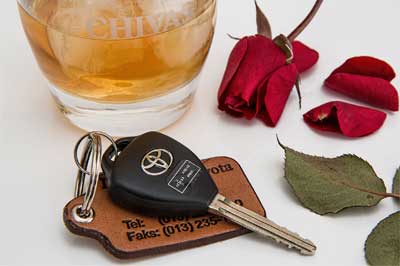Carnival season is upon us and with it, more reason for you to be aware of your actions before you get behind the wheel. Absolutely do not drink and drive. No matter how good that King Cake Vodka is, nothing tastes as good as your freedom.
Defining the term in Louisiana:
The consequences of a DWI conviction in Louisiana are harsh and costly. Even for a first offense, you can face jail time and will need a talented DWI lawyer to help you with your legal battle.
What exactly is a DWI? Don’t think it only pertains to drinking and driving. According to Louisiana Revised Statute 14:98, Driving While Intoxicated (DWI) is defined as operating a motor vehicle when under the influence of alcohol, or controlled dangerous substance drugs, or, when a person’s blood-alcohol content (BAC) is .08 or greater, or
- When a person is under the influence of a combination of alcohol and a non-controlled dangerous substance, or
- When a person is under the influence of one or more drugs which are not controlled, and which are obtainable with or without a prescription
For the full statute, you can follow this link: https://legis.la.gov/legis/Law.aspx?d=78751
Your BAC is the concentration of alcohol in your blood measured as weight per unit of volume. Most of the time it is analyzed with breath checks with are usually just as effective as a blood test. That’s right, the infamous breathalyzer! In Louisiana, if you are over the age of 21 and found to have a BAC of at least .08 percent you will be charged with a DWI. If you are under the age of 21, your BAC only needs to be .02 percent in order to be charged.
Sobriety checkpoints
Even if you think you are okay to drive, don’t risk it. According to the US Department of Transportation, drunk-driving deaths increased by 1.7 percent in 2016 from the previous year. There were a total of 10,497 fatalities in 2016. Throughout the parishes, especially in Orleans and St. Tammany, police checkpoints become more frequent during Mardi Gras. Be cautious, and be aware. The police are looking for signs of impairment and intoxication and utilizing these checkpoints as part of their larger drunk driving deterrence program. If you refuse a chemical test at a checkpoint, you automatically will face the following harsh driver’s license suspension according to the DMV:
- First offense: 365 days. That’s ONE YEAR with a suspended license for refusing to blow!
- Second and subsequent offenses: 730 days
These consequences are allowed because when you accept a driver’s license issued by the Department of Public Safety and Corrections, you agree to submit to a chemical test when asked to do so by law enforcement, otherwise known as implied consent.
What are the consequences?
In Louisiana, your first DWI offense is a misdemeanor. The following are the penalties for a first offense:
Your second offense is still considered a misdemeanor with the following penalties:
Your third offense is considered a felony in the state of Louisiana.
Also, for any offense, your judge may also require you to work on community service projects and enroll in a driver improvement program at your expense.
Getting a DWI is a serious matter and can severely affect your life years after your conviction. If you do find yourself in the unfortunate situation of fighting a DWI conviction, you need to contact a knowledgeable and experienced lawyer as soon as possible. Sarabeth T. Bradley is here for you and dedicated to putting your interests first. To learn more about what she has to offer, give her a call today at 985-888-1874.

